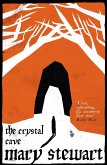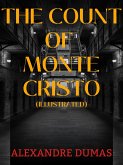In The Allegory of the Cave, Plato describes a group of people who have been chained in a cave all their lives, facing a blank wall. They watch shadows projected on the wall from objects passing in front of a fire behind them, and they give names to these shadows. Although they are not accurate representations of the world, these shadows become the prisoners' reality.
One prisoner is freed from the cave and, after seeing the natural world, realizes that the shadows are an illusion. He returns to the cave and tells the other prisoner what he has seen. The prisoners of the cave, however, who know only this life would rather see him die than hear the truth, and they sentence him to death. This is the tale told by these volumes.
Prisoners of the Cave: Love, Loss, and Survival After the Chinese Communist Revolution is a translated, abridged edition of the original Chinese publication The Dream in Lake Village. The first of two volumes recounts the true stories of villagers living in Nanke, a small lakeside town in southern China, from 1949 to 1999.
These stories cover many pivotal, political events from Chinese history, including the Great Leap Forward, Cultural Revolution, Land Reform Movement, Anti-Rightist Campaign, Three Red Banners Movement, Reform and Opening Up, and June Fourth Incident--all of which had huge permanent impacts on Chinese society.
Beginning with a kind-hearted widow named Aunt Li, who seeks to find the truth behind the chaos and turmoil of the world, the novel follows the paths of many of her family members, friends, and neighbors. Their stories of suffering, loss, love, and success continuously return to the two threads that run through the entire novel--one of good and one of evil. The progression of their lives reveals that humans are inherently good and that no matter how evil an ideology or practice, it can only pollute an inherently kind and compassionate mind for so long. Evil cannot run rampant forever--eventually, good will triumph.
One prisoner is freed from the cave and, after seeing the natural world, realizes that the shadows are an illusion. He returns to the cave and tells the other prisoner what he has seen. The prisoners of the cave, however, who know only this life would rather see him die than hear the truth, and they sentence him to death. This is the tale told by these volumes.
Prisoners of the Cave: Love, Loss, and Survival After the Chinese Communist Revolution is a translated, abridged edition of the original Chinese publication The Dream in Lake Village. The first of two volumes recounts the true stories of villagers living in Nanke, a small lakeside town in southern China, from 1949 to 1999.
These stories cover many pivotal, political events from Chinese history, including the Great Leap Forward, Cultural Revolution, Land Reform Movement, Anti-Rightist Campaign, Three Red Banners Movement, Reform and Opening Up, and June Fourth Incident--all of which had huge permanent impacts on Chinese society.
Beginning with a kind-hearted widow named Aunt Li, who seeks to find the truth behind the chaos and turmoil of the world, the novel follows the paths of many of her family members, friends, and neighbors. Their stories of suffering, loss, love, and success continuously return to the two threads that run through the entire novel--one of good and one of evil. The progression of their lives reveals that humans are inherently good and that no matter how evil an ideology or practice, it can only pollute an inherently kind and compassionate mind for so long. Evil cannot run rampant forever--eventually, good will triumph.
Dieser Download kann aus rechtlichen Gründen nur mit Rechnungsadresse in A, D ausgeliefert werden.









